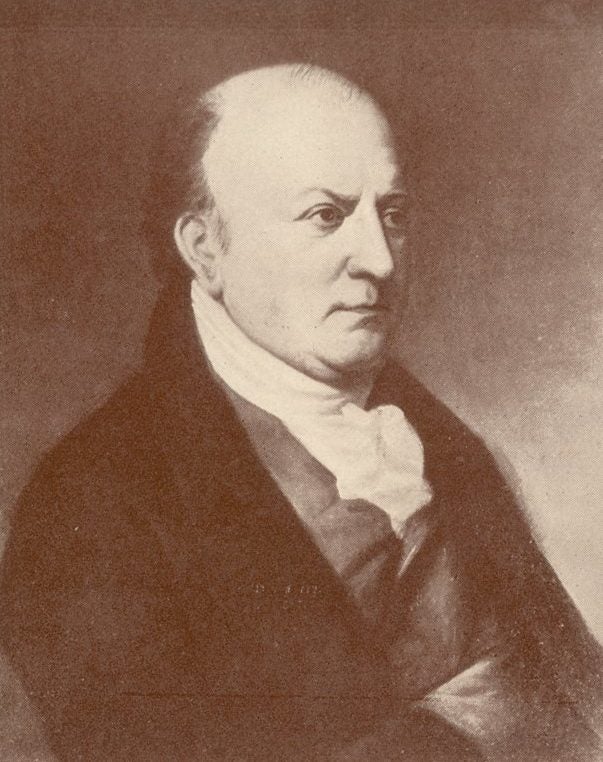Summary Information
- Date [inclusive]
- 1759-1839
- Extent
- 0.3 Cubic feet
PROVENANCE
Found in Edgar Fahs Smith Papers in February, 1978.
BIOGRAPHICAL NOTE
Born in London in 1759, Cooper matriculated at Oxford University, where he studied science, medicine, and law. Becoming well-known as a lawyer of radical political sentiments, he traveled to France during the Revolution as an observer, attracting the oratorical ire of Edmund Burke in House of Commons. Failing in business after his return to Great Britain, he immigrated to the United States and settled in Pennsylvania. He soon criticized President Adams and was fined and imprisoned under the Sedition Act. After the political defeat of the Federalists in Pennsylvania in the first years of the nineteenth century, Cooper was rewarded with a judgeship in northern Pennsylvania, where he settled the Pennamite land dispute between Pennsylvania and Connecticut, but he was later removed from office for “arbitrary conduct.”
His career as an academic began in 1811, when he was elected Professor of Chemistry at Dickinson College. He remained there until 1814, when he was appointed to the same position at the University of Virginia. From 1816 to 1820, he was Professor of Applied Chemistry and Mineralogy at the University of Pennsylvania, where he taught the first courses in geology that were not under the auspices of the School of Medicine. From 1820 to 1834, he was President of the Medical College of South Carolina, now the Medical University of South Carolina. During the Nullification Crisis, he was notable as an extreme advocate of States’ Rights. He died in Columbia, South Carolina, in 1839.
Inventory
|
General file |
Box |
Folder |
|
|
Miscellaneous biographical material (would not fit in AR) |
1 |
|
|

